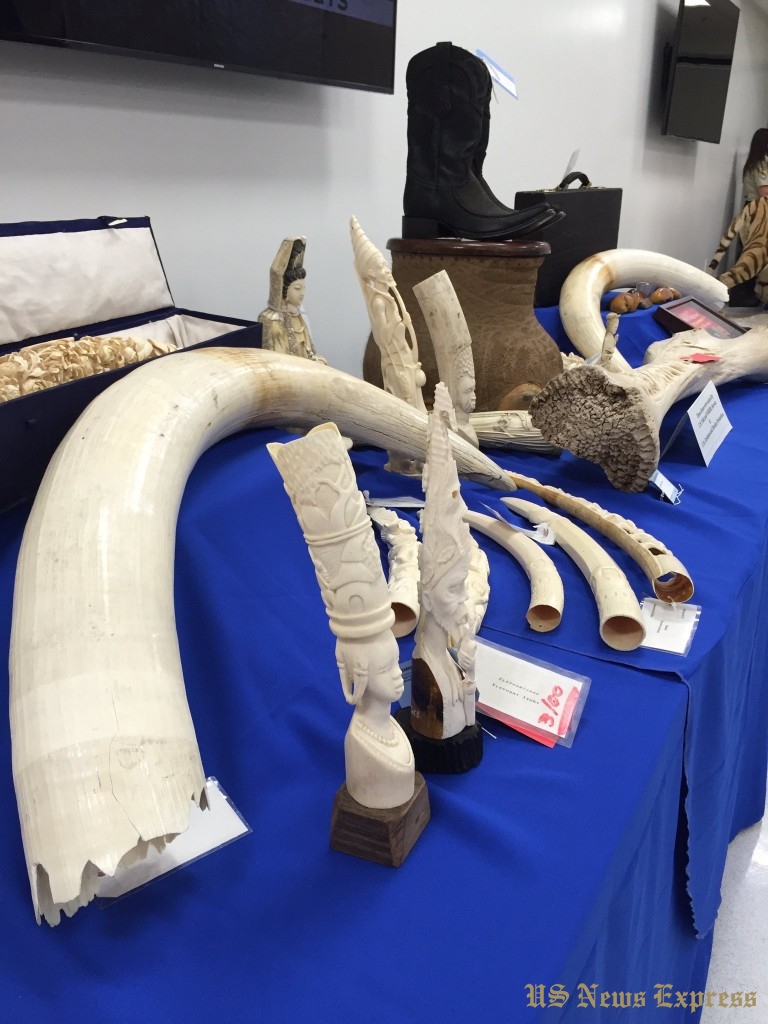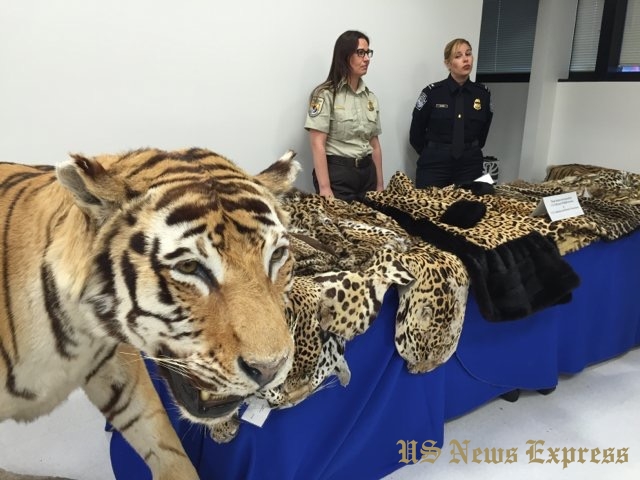
Los Angeles (September 7, 2016) — Following the release of a new survey showing shocking declines in African elephant numbers, U.S. Fish and Wildlife Service and conservation nonprofit WildAid have launched #StopWildlifeTrafficking, a nationwide public awareness campaign against the illegal wildlife trade in support of the WhiteHouseNationalStrategytoCombatWildlifeTrafficking. WithsupportfromU.S. Customs and Border Protection, this campaign launch signifies that the U.S. government is unified in its work to combat wildlife trafficking and will not tolerate illegal wildlife products smuggled into or from the country.
International wildlife trafficking is worth an estimated $10-20 billion per year annually, making it one of the world’s largest illicit trades after illegal drugs, arms, and human trafficking. The United States is a chief consumer of wildlife products (both legal and illegal), but a recent poll commissioned by WildAid found 80 percent of Americans know little or nothing about illegal wildlife trade within the United States. As a result, travelers often are unaware that products they bring into the United States are prohibited.
#StopWildlifeTrafficking’s debut ads, which will be distributed across broadcast and social media channels, focus on the ivory trade’s effect on Africa’s elephants. Celebrity ambassadors include Jeremy Renner (The Bourne Legacy, The Hurt Locker), Maggie Q (Nikita, Stalker, Divergent series), Lupita Nyong’o (Academy Award winner, 12 Years a Slave), Michael Cudlitz (The Walking Dead), Danai Gurira (The Walking Dead), Keegan Allen (Pretty Little Liars) and Taylor Kitsch (True Detective, Friday Night Lights). Two public service announcements featuring campaign ambassadors were released today at press events at Los Angeles International Airport (LAX) and Hartsfield-Jackson Atlanta International Airport — both major U.S. entry points where wildlife product seizures are common. Customs and Border Protection hosted the the press conference at LAX, where Keegan Allen appeared and spoke of his commitment to the issue.
“Americans should learn and care about where our purchases come from and the origins of the products,” said WildAid CEO Peter Knights. “An ounce of awareness could save species.”

The Great Elephant Census findings released last week showed elephants are disappearing from Africa faster than previously thought. The savanna elephant population dropped by nearly one-third during 2007-2014 in 15 of 18 countries surveyed — largely due to ivory poaching — with about 352,000 savanna elephants remaining. Other iconic species targeted by poachers such as rhinos, tigers, lions and sea turtles also are in decline.
The WildAid-commissioned poll found that while the American public is largely aware that wildlife trafficking affects elephants as well as rhinos and tigers, there is little awareness of other animals targeted by illegal trade, including exotic birds, reptiles and domestic species such as the American black bear and turtles. Full poll results and species information can be found at the campaign’s new website, StopWildlifeTrafficking.org.
“This is our fight as global citizens, because the choices we make here at home — and in our travels around the world — have a direct impact on the well-being of wild populations of elephants, rhinos, tigers and many other imperiled species,” said Service Director Dan Ashe. “This campaign drives that message home. Our choices – your choices – matter.”
Ashe noted that much of the world’s commercial trade in wildlife-related products – both legal and illegal – is destined for U.S. consumers or passes through our nation’s ports on the way to other nations. In 2015, Service wildlife inspectors inspected more than 180,000 wildlife-related shipments in the United States, with Los Angeles and New York as the main ports of entry.

In the coming months, the campaign will release more public service announcements as well as billboards featuring WildAid ambassadors including David Beckham, Prince William, and many others.
The new campaign supports President Obama’s national wildlife trafficking strategy comprising of three core objectives: strengthening enforcement of wildlife trafficking laws, reducing demand of wildlife products through public awareness campaigns, and leveraging international partnerships to crack down on poaching.
The U.S. Wildlife Trafficking Alliance, a voluntary coalition of non-profit organizations, companies, foundations, and media interests, works closely with the U.S. government in a collaboration to implement the goals the executive order.





















